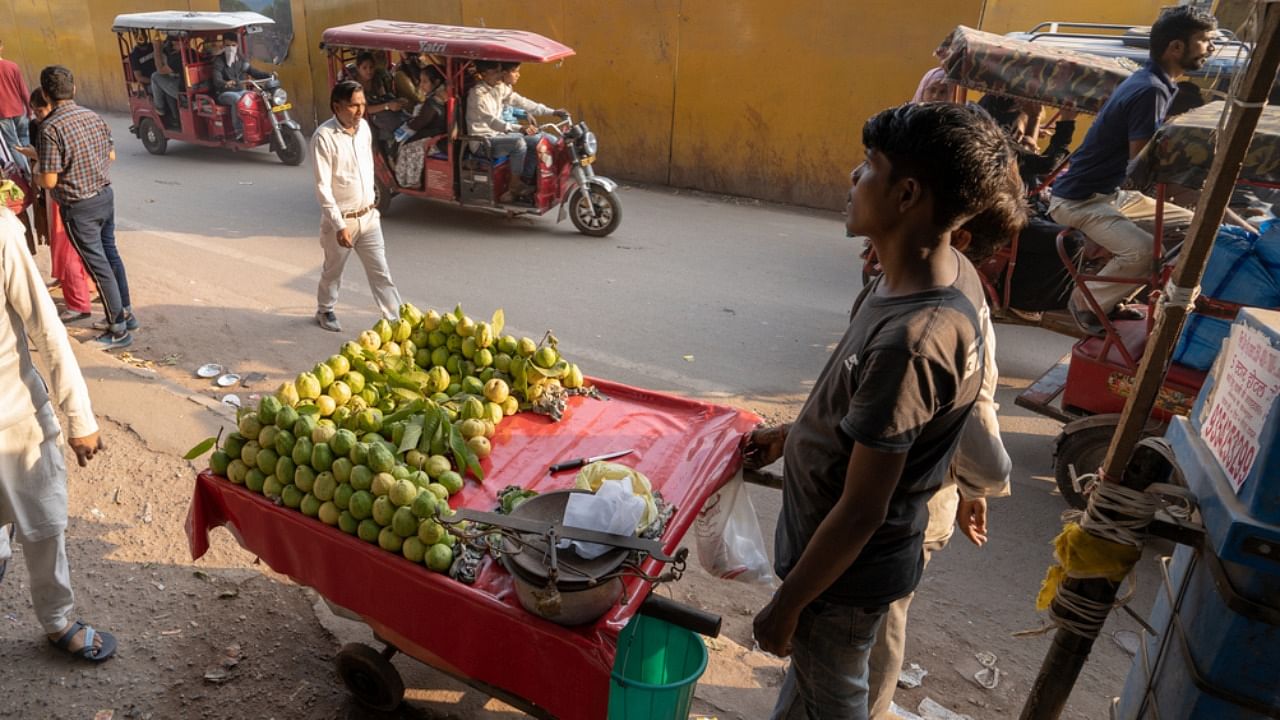
With the lockdowns during the second wave of Covid-19 leading to job loss and "severely" impacting informal and unorganised sector workers, the National Human Rights Commission (NHRC) has urged the Centre and States to roll out an urban employment programme, increase wages and working days under MGNREGA and take steps to discourage wage deductions in the name of pandemic.
The 'Advisory 2.0: Safeguarding rights of informal workers during second wave of the Covid-19 pandemic' issued by the NHRC on Monday wanted the States to notify against Resident Welfare Associations (RWAs) imposing curbs on entry of domestic workers while leaving such decisions solely to the employer and domestic help.
Acknowledging that the pandemic has left women economically vulnerable and their responsibilities of unpaid care work have multiplied, negatively affecting their labour force participation, it also urged the government to initiate a national campaign of sharing of work to reduce their burden of unpaid care work.
Citing the Azim Premji University's 'State of Working India 2021: One year of Covid-19', the NHRC said 23 crore Indians have been pushed into poverty in the past one year and these are families primarily in the informal sector of over 50 crore Indians. It said other surveys also indicated high unemployment and wage losses among informal sector workers across different states.
It noted that there are several specific groups of workers in the informal sector such as crematorium/burial ground workers, domestic workers, traditional artisans, gig workers and small enterprises among others who face additional vulnerabilities in the second wave.
"Crematorium and burial ground workers have emerged as frontline workers as they deal with bodies affected by Covid-19. They are often found working without proper personal protective equipment. Domestic workers, who are still seen as potential carriers of the virus, face curbs on movements by RWAs which affects their livelihoods and pushes them to the fringes," the advisory said.
It also referred to micro enterprises such as tea shops and barber shops getting shut due to lockdowns or lack of customers and these situations are "evidence of the levels of precarity" experienced by informal sector workers.
Pushing for 'Shahari Rojgar Yojna', it said an urban employment programme would help mitigate distress in urban centres and it could entail works like construction, maintenance and upgradation of civic infrastructure, green jobs that include rejuvenation of degraded lands and cleaning of water bodies, care work in creches and elderly homes and Covid-19 related work to produce essential commodities such as PPEs.
Echoing voices of the activists working with the rural population, the NHRC wanted the governments to revise daily wages under MGNREGA as per the inflation rate and Consumer Price Index, besides increasing working days to 200 days at least till March 31 next year.
"In order to revive employment for informal workers and economy during the pandemic, the Union Ministry of Medium, Small and Micro Enterprises should consider a moratorium of loans outstanding on both interest and EMI component, additional pandemic emergency loans, extension of ongoing loan restructuring scheme beyond June and removal of foreclosure penalty levied by banks on prepayment of loans.
It suggested that frontline workers in the informal sectors like crematorium/burial ground workers, sanitation workers, domestic helps and mortuary workers be given PPEs. The government should also take steps for registering them under a specific Covid-19 or other health insurance schemes.
The state governments also should take steps to register domestic workers in schemes like Rashtriya Swasthya Bhima Yojna.
